FIGHTING FOR LIFE
From the operating room to the recovery ward, the hospital staff spends every day working to keep death at bay.
From the operating room to the recovery ward, the hospital staff spends every day working to keep death at bay.
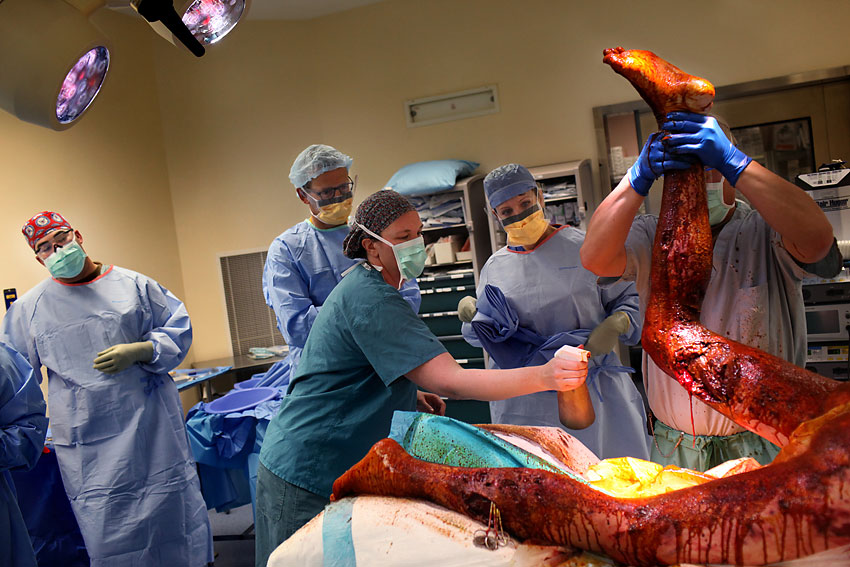
Capt. Maija McLellan, a Canadian surgical nurse, douses Pvt. Dean Hines' legs with iodine. Hines was wheeled into the operating room roughly two hours after he was hit by an IED. The surgeons working on him must clean his wounds as thoroughly as possible to prevent infection.
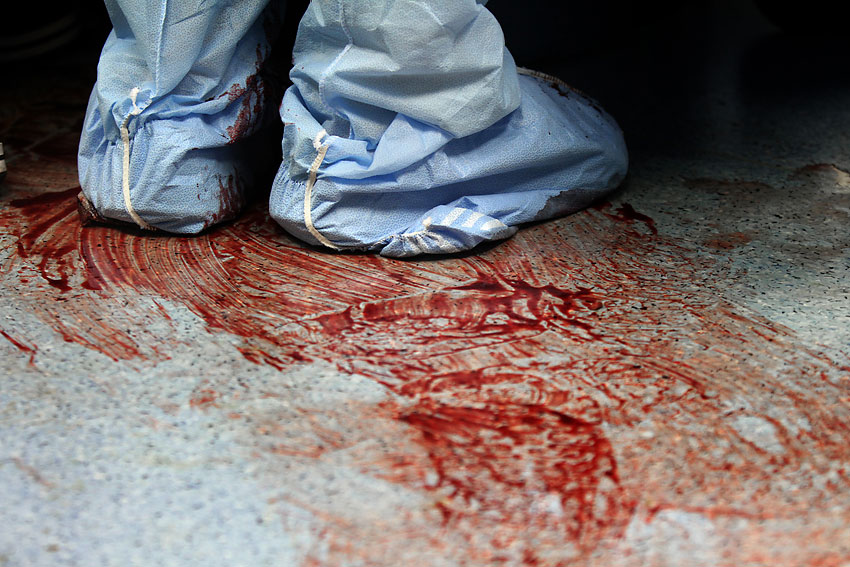
By the time Pvt. Dean Hines' six-hour operation is done, the doctors' gowns and the operating room floor are stained with blood, saline and iodine.

Members of the staff work to keep Pvt. Dean Hines, 21, stable in the ICU after an extensive surgery.

Blood from a patient in the operating room covers a doctor's gloves.

1st Lt. Sanne Springuloet, with the Dutch army, briefly rests during Pvt. Dean Hines' surgery. The medical term for what the doctors are doing is wound irrigation and debridement. One round can take a team of surgeons six or seven hours, and it will be repeated as many times as necessary to prevent infection.

Doctors removed this mixture of shrapnel from Pvt. Dean Hines' legs. In other cases, surgeons have found marbles, nails and pieces of children's toys. They've heard that insurgents sometimes even pack their bombs with feces to better ensure infections in soldiers they don't manage to kill.
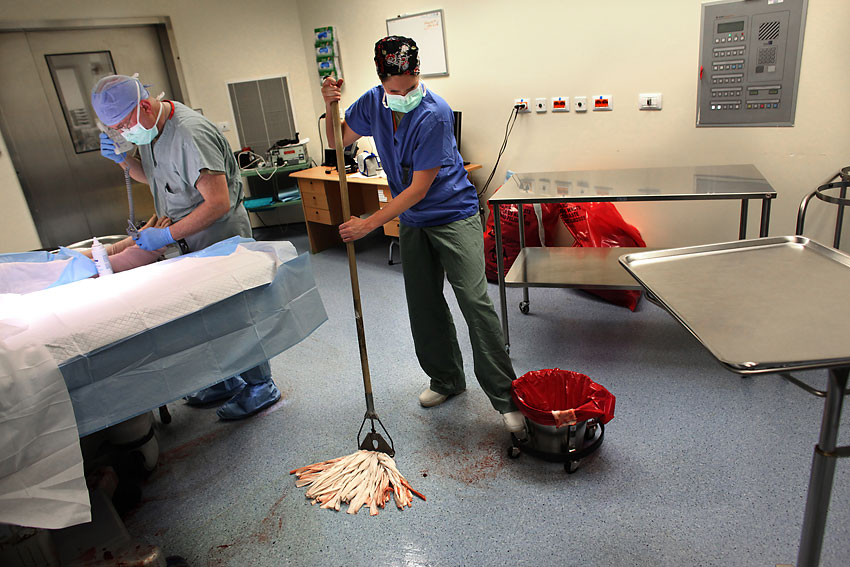
1st Lt. Sanne Springuloet cleans up the operating room after Pvt. Dean Hines' surgery. At left is Navy Capt. Tim McCullough, the hospital's director of surgery. He's based in Portsmouth.
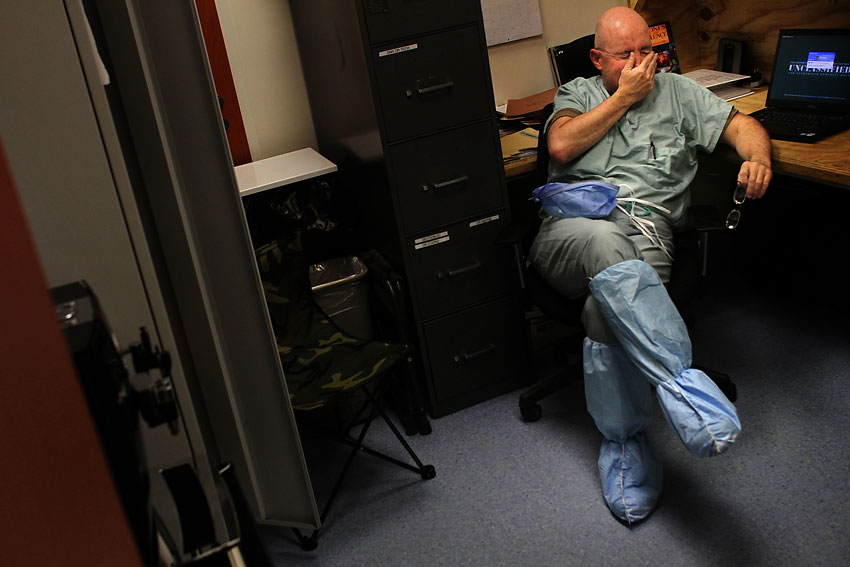
Navy Capt. Tim McCullough takes a breather after many hours of surgery. It's not uncommon for the hospital's surgeons to spend six or seven hours in the operating room without a break or to perform back-to-back surgeries.
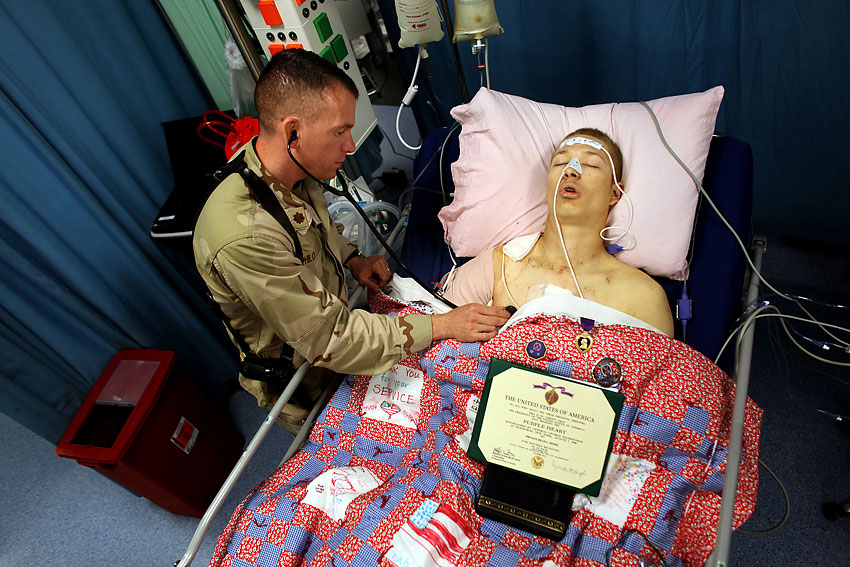
Lt. Cmdr. Len Philo checks on Pvt. Dean Hines as he rests in the ICU after receiving a Purple Heart. "Twenty-one and you've got a Purple Heart. Not bad," said the general who presented it to him. The quilt to which the medal is pinned was made by volunteers in the United States.
Sometimes, when patients' injuries are too severe, the job is simply to comfort.